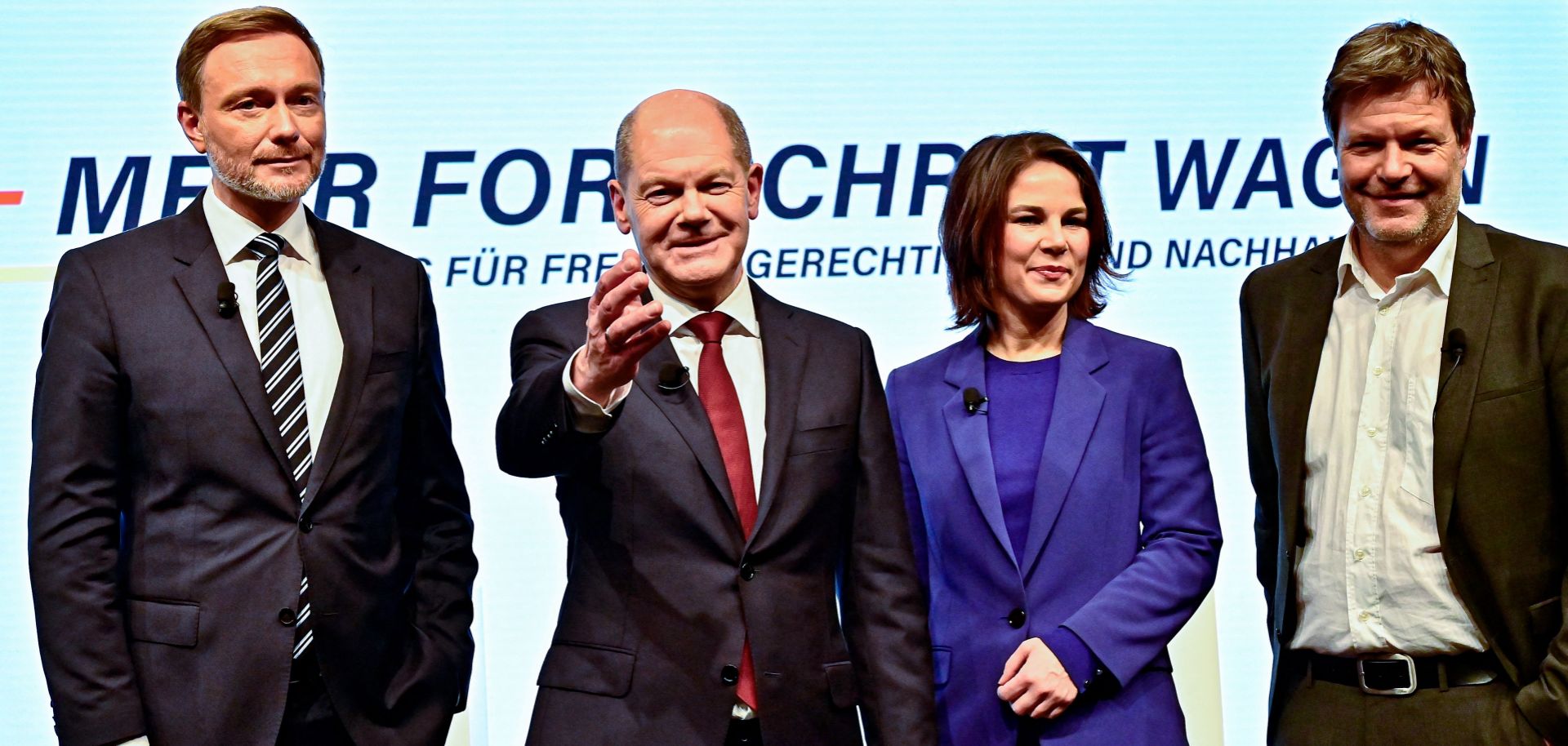SNAPSHOTS
German Parties Agree on a New Government. Now What?
Nov 24, 2021 | 16:45 GMT

FDP leader Christian Lindner, SPD leader Olaf Scholz and the co-leaders of Germany's Greens party Annalena Baerbock and Robert Habeck (left to right) pose during a press conference in Berlin after presenting their coalition agreement on Nov. 24, 2021.
(TOBIAS SCHWARZ/AFP via Getty Images)
Subscribe Now
SubscribeAlready have an account?
